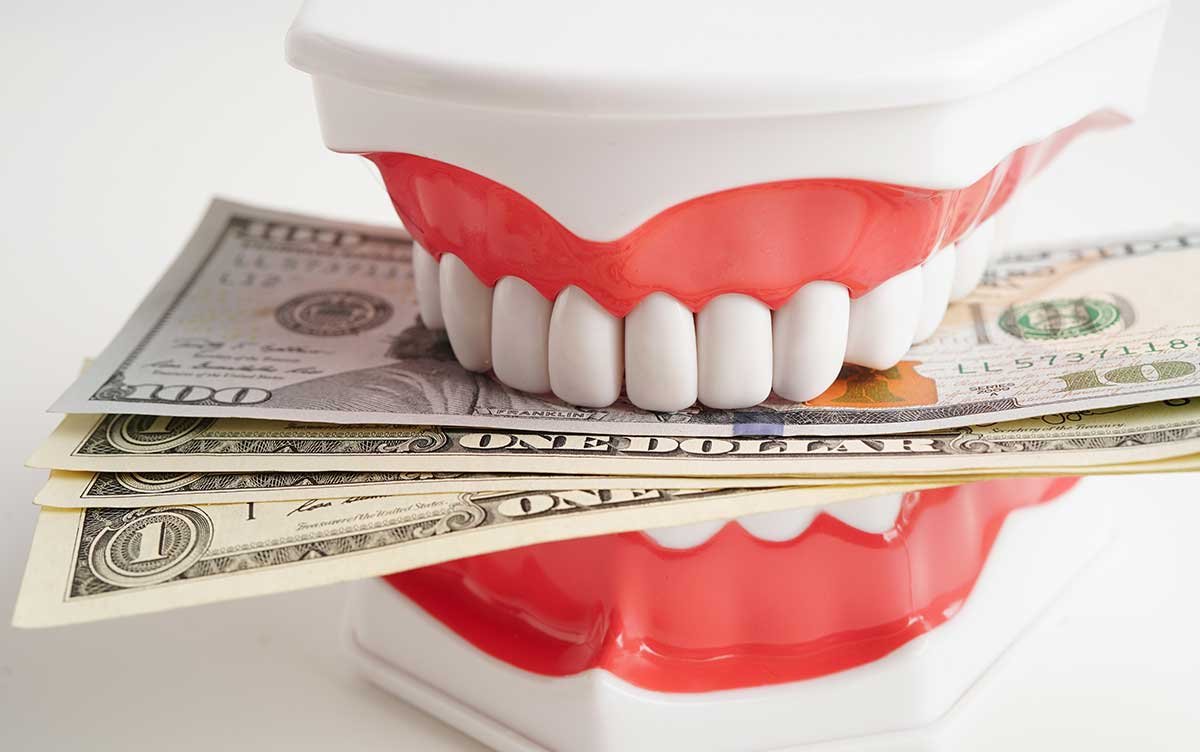What is the downside to permanent dentures? Permanent dentures, also known as implant-supported dentures, are a popular solution for those who have lost most or all of their natural teeth. While they offer benefits such as improved comfort and stability, there are also potential downsides to consider. In this article, we will explore the disadvantages of permanent dentures, including the cost, maintenance requirements, and the possibility of complications. If you are considering permanent dentures, it is important to weigh both the pros and cons before making a decision.
Disadvantages of Permanent Dentures: Understanding the Limitations in Comparison to Dental Implants
Disadvantages of Permanent Dentures: Understanding the Limitations in Comparison to Dental Implants is an important topic for those exploring tooth replacement options. Although permanent dentures can be a good choice for some patients, they are not without their limitations. Unlike dental implants, which are anchored into the jawbone and function like natural teeth, permanent dentures rely on suction or adhesive to stay in place. This can cause discomfort and difficulty speaking or eating, especially if the dentures become loose over time. Additionally, permanent dentures must be removed for cleaning, which can be inconvenient for some patients. In contrast, dental implants are a more permanent solution that do not require removal for cleaning and offer a more natural look and feel. However, they are also more expensive and require a surgical procedure. Ultimately, the choice between permanent dentures and dental implants depends on the individual patient’s needs and preferences.
What are the issues with permanent dentures?
Permanent dentures, also known as traditional or full dentures, can present several issues:
1. Poor fit: Dentures can slip, slide, or even fall out, causing embarrassment and discomfort for the patient. This is because dentures rely on suction or adhesive to stay in place, which can be unreliable.
2. Difficulty with eating: Denture wearers may have difficulty chewing or biting certain foods due to the lack of stability offered by their prosthetic teeth.
3. Bone loss: Traditional dentures do not stimulate the underlying jawbone, which can lead to bone loss over time. This can result in changes to facial structure, making individuals look older and altering the fit of their dentures.
4. Oral hygiene: Cleaning dentures can be a tedious task, and if not done properly, it can lead to bacterial growth or fungal infections. In addition, food particles can become stuck between the dentures and gums, causing irritation and potential infection.
This is where dental implants come in as a viable alternative. Dental implants are surgically placed into the jawbone, providing a sturdy and secure foundation for prosthetic teeth. Because they are anchored into the bone, they offer better stability when eating or speaking. Additionally, dental implants stimulate the jawbone, which can prevent bone loss and help maintain a more youthful appearance. Implant-supported restorations also offer better oral hygiene, as they are cleaned just like natural teeth, without the need for special cleaning solutions or adhesives.
Is getting permanent dentures a viable option?
Getting permanent dentures may not be the most viable option in terms of Dental Implants. While dentures are a common solution for missing teeth, they are not permanent and require regular maintenance, adjustments, and replacement. In contrast, dental implants offer a permanent solution, as they fuse with the jawbone and provide a stable foundation for replacement teeth. Additionally, dental implants have a higher success rate and can improve overall oral health by preventing bone loss and preserving adjacent teeth. Therefore, if you are considering replacing your missing teeth, it is recommended to consult with a dental implant specialist to determine if dental implants are the right option for you.
What is the average lifespan of durable dentures?
Durable dentures generally have a lifespan of 5 to 8 years, but with proper care and maintenance, they can last up to 10 to 15 years. However, the lifespan of dental implants that support the dentures is much longer as they are designed to be a permanent solution for missing teeth. Dental implants have a success rate of up to 98% and can last a lifetime with good oral hygiene and regular dental check-ups. It’s important to note that the lifespan of both dentures and dental implants can be affected by factors such as bone density, gum health, and overall oral health. Regular visits to the dentist for check-ups and adjustments can help prolong the lifespan of dental prosthetics.
Do permanent dentures have a fake appearance?
Permanent dentures, also known as dental implants, do not typically have a fake appearance. They are designed to look and feel like natural teeth, with a customized color and shape that matches the surrounding teeth. Additionally, the use of advanced materials and techniques in dental implant surgery has made it possible to create a realistic and aesthetically pleasing smile. With proper care and maintenance, dental implants can provide a long-lasting, natural-looking solution for missing teeth.
Frequent Questions
What are the potential complications of permanent dentures compared to dental implants?
Permanent dentures can be a good option for some people who have lost all of their teeth. However, there are potential complications associated with this type of restoration. Over time, permanent dentures may become loose or uncomfortable, and may need to be adjusted or replaced.
Dental implants, on the other hand, have a higher success rate and fewer complications than permanent dentures. The most common complication associated with dental implants is implant failure, which occurs when the implant does not properly integrate with the surrounding bone. Other potential complications include infection, nerve damage, and damage to surrounding teeth or structures.
Overall, while both permanent dentures and dental implants can be effective options for replacing missing teeth, dental implants tend to offer more reliable and durable results with fewer complications in the long term.
Can permanent dentures cause bone loss in the jaw, and how does this impact oral health?
Permanent dentures can cause bone loss in the jaw over time. This is because unlike dental implants, permanent dentures are not securely anchored into the jawbone. Without the stimulation provided by the implant posts, the surrounding bone tissue will begin to slowly deteriorate, leading to a reduction in bone volume and density.
Over time, this can result in a number of negative side effects such as loose or ill-fitting dentures, changes to the facial structure, and even difficulties with speaking and eating. Additionally, bone loss in the jaw can also lead to an increased risk for gum disease, tooth decay, and other oral health problems.
In contrast, dental implants are designed to mimic the natural structure of your teeth and provide much-needed stimulation to the underlying jawbone. By fusing with the surrounding bone tissue, they help maintain healthy bone volume and density in the long run. This makes them a superior option for those looking to replace damaged or missing teeth and maintain good oral health over time.
How do the costs of maintaining permanent dentures compare to the cost of getting dental implants?
Dental implants may seem expensive at first, but in the long run, they can actually be more cost-effective than maintaining permanent dentures. While dentures may have a lower upfront cost, they require ongoing maintenance and replacement as they wear down or become ill-fitting over time. This can add up to significant costs over the years. On the other hand, dental implants are designed to last for many years with proper care and maintenance, and they do not need to be replaced as frequently as dentures. Additionally, dental implants can help prevent further tooth loss and decay, which could lead to even higher costs down the line. So, while the initial cost of dental implants may be higher than that of dentures, their long-term benefits and cost savings make them a smart investment for those who want a permanent solution to missing teeth.
In conclusion, while permanent dentures may seem like a convenient solution for those who have lost all or most of their teeth, there are several downsides to consider. These include discomfort, difficulty eating certain foods, and the need for frequent adjustments. Additionally, permanent dentures can promote bone loss in the jaw, which can cause further dental problems down the line. Dental implants offer a more stable and long-lasting solution, with fewer downsides. They allow patients to eat and speak normally, and they help preserve the jawbone. Overall, it is important to carefully consider all options before making a decision about dental restoration.



